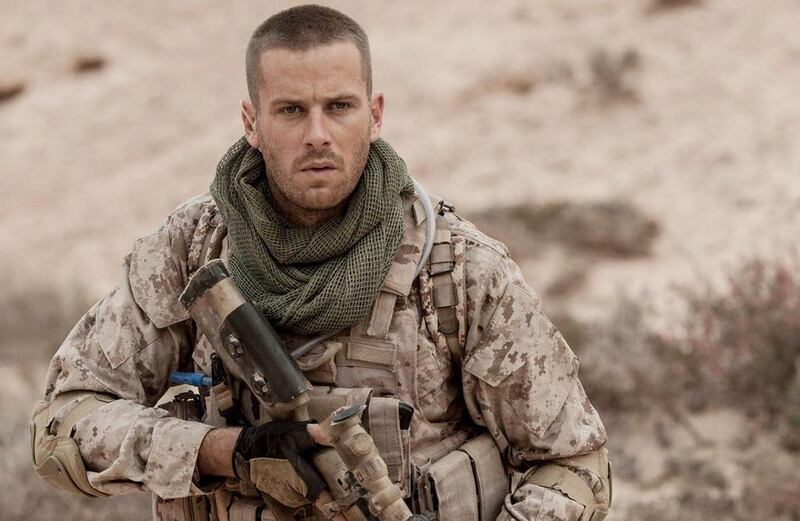Mine
Director: Fabio Guaglione, Fabio Resinaro
Starring: Armie Hammer, Annabelle Wallis, Tom Cullen, Clint Dyer
Two stars
Mine is a film that is nowhere near as clever as it thinks it is. It immediately draws comparison with "single-location" films such as Phone Booth and Buried, in which characters are confined to a single place for most or all of the movie.
But while both of those movies felt imaginative and daring, this directorial debut from Fabio Guaglione and Fabio Resinaro is all conceit and no substance.
Armie Hammer – who has of late been swapping blockbusters for more independent fare, such as Free Fire and Call Me By Your Name – stars as Mike, a tightly-wound US Marine sniper. Accompanied by his spotter Tommy (Tom Cullen), he is on a mission in North Africa to take down a terrorist target, only for events to conspire against the soldiers. Before they know it, they are miles from base and stranded in a minefield.
Tommy steps on a mine, leaving him badly injured. Before Mike can help, he hears a click and realises he too has stepped on a mine. If he lifts his foot, it will explode. Not daring to move an inch, he is left rooted to the spot. Radioing for help, a rather unsympathetic military colleague informs him that he will have to wait for 52 hours before help can reach him.
After an admittedly neat set-up, Mine fails to match the visceral, tense quality of its early scenes. Hallucinating wildly in the desert heat, Mike seeks help from a Bedouin local (Clint Dyer), who speaks in guru-like riddles in improbably good English. There are also plenty of flashbacks to Mike's girlfriend Jenny (Annabelle Wallis) and abusive father (Geoff Bell), as these incidents swirl around his increasingly sun-fried brain.
Despite good work from Hammer, who gamely tries to keep viewers interested in a character barely able to move a muscle, the film lacks any real political, psychological or emotional subtext.
In the end, it’s a very mainstream drama about abuse, vulnerability and fragility. The two Fabios are clearly talented – but this film is little more than a “look at us” calling card directed towards Hollywood.
artslife@thenational.ae





